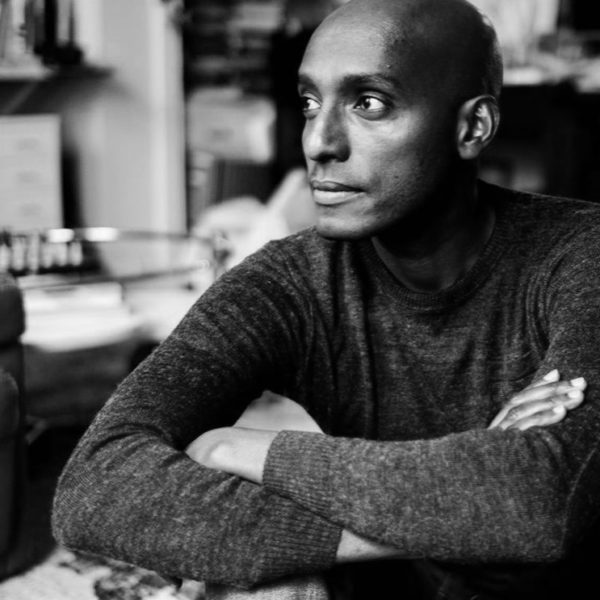
It’s been barely two days since Sulaiman Addonia’s second novel, Silence is My Mother Tongue, was published, so it is a real treat to read his new essay published in Granta.
Addonia is an Eritrea-born British novelist. After the Om Hajar massacre in 1976, he moved to a refugee camp in Sudan and later to Saudi Arabia. When he arrived in London, a young boy, he knew hardly any English. This experience of loss haunts his writing about modes of exposure that reveal the essences of life, art, and the body.
In the essay, titled “Writing Like Degas Paints,” Adonnia reminds us of the power of the body to ignite artistic imagination and feed creative passion. He opens the essay with a story about his first encounter with Degas’s work. One of Degas’ painting in which a naked woman is bathing in a large bucket stayed with him over time. This interest in Degas’ representations of nude women laid the foundation for his thinking on what he calls “the power of nudity.”
For Adonnia, nudity is not just a way of representing the body in art and writing. It is a way of experiencing the body and placing it with the context of performance. For him, nudity is exposure that gets us to the heart of life, after history, our surroundings, and our many artificial identities have been peeled off.
Enjoy this little excerpt where he details the revelation brought on by his experience with nudity.
I remember the day I stood in front of a mirror naked after a dance. I opened my body to my own inquisitive stare. I wasn’t looking at the massacre I had survived as a two-year old boy, the years I spent in a remote camp, and those that followed in Saudi Arabia. My image of myself now wasn’t disturbed by the challenges I had faced in London. I was looking at this half-Eritrean, half-Ethiopian man still standing, still dancing. Nudity enabled me to see me and not all that surrounded me. As I looked at the pictures I had taken of myself in different poses, unclothed by fabric or history, I began to discover things buried deep inside me: the woman in me as well as the man, the immigrant, the wanderer, the silent boy, the stubborn, flawed human being that I am. I was more than a refugee. I was one hundred other things too.
Taking these nude self-portraits inspired me to look beyond the obvious. So when the Ethiopian painter in my novel, who had studied art in Paris, complains that he can’t find a model to paint, his mind opens up when he finds himself standing in front of Hagos, my male character. The painter realises that a muse isn’t necessarily a woman. So he asks Hagos if he could pose naked for him. A male body can be a paragon of beauty too.
Today my novel is finally finished, ten years after I encountered Degas’s painting in Paris. Silence is My Mother Tongue is first of all a portrait of us, Eritreans–Ethiopians, of our intimate world, and the things we see when we dare to undress ourselves of our history. That even in the middle of ruins and tragedies, there are many beautiful things we hold inside us that we come to see once bathing naked in the glorious details of our own humanity.
Adonnia’s first novel The Consequences of Love was published in 2008. Indigo Press recently published his second titled Silence is My Mother Tongue.








COMMENTS -
Reader Interactions